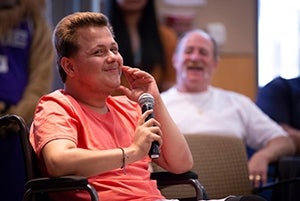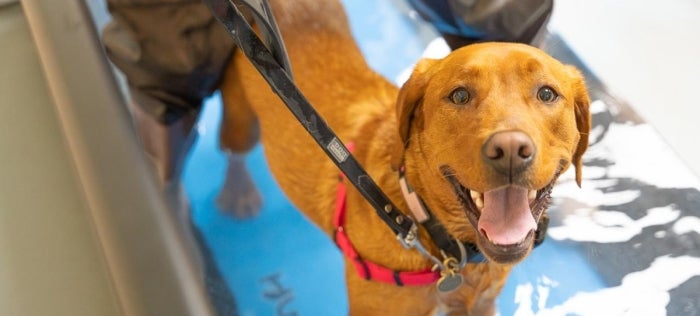Lifting up life and MIND
January 3, 2022—Despite the challenges of the pandemic, UC Davis has continued to help families affected by neurodevelopmental challenges through telehealth and safe in-person visits. The MIND Institute uses innovative technologies that are affordable and accessible, and goes above and beyond to help families—through webinars, interviews and robust online resources to support families through stressful situations and more. Discover these inspiring stories at the MIND Institute and how UC Davis is leading the way in autism and other neurodevelopmental research.
Essential research
The RDM Positive Impact Foundation is funding a $1.25 million research program at the UC Davis MIND Institute to study SYNGAP1, a rare genetic condition that causes seizures (epilepsy), intellectual disability, developmental delays, and is highly associated with autism. As leaders in autism research, UC Davis experts and this robust gift will empower people with autism and other neurological conditions to live rich and meaningful lives.
A wish to help other

Carlo Sandoval donated his Make-A-Wish gift to kids with autism when he was just 16. The Sacramento native hopes to be a role model by doing something kind for kids with autism. Thanks to Sandoval’s kindness and support of wish sponsor Bristol-Myers Squibb, Inc., the MIND Institute purchased a mobile VECTA calming station valued at more than $5,000. This sensory-friendly machine helps promote positive coping during difficult procedures like blood draws.
Transformative college experiences
A groundbreaking new college program serving students with intellectual disabilities at UC Davis is now open. This fall, 11 Redwood SEED (Supported Education to Elevate Diversity) Scholars have joined their fellow first-year students on campus as part of the inclusive, four-year program. The MIND Institute and the UC Davis Office of Diversity, Equity and Inclusion are jointly running the program, which is funded in part by a five-year, $2.1 million grant from the U.S. Department of Education.


